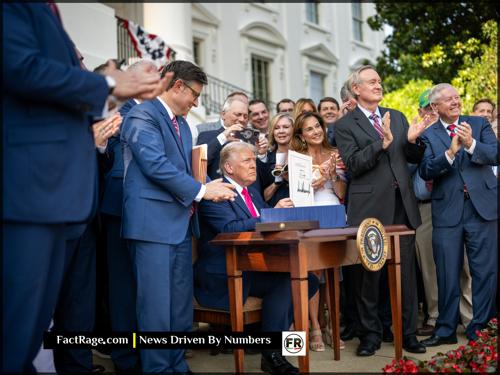WASHINGTON, DC – Republican Congressman Mark Green of Tennessee, the chairman of the House Homeland Security Committee, has announced he will not seek re-election, a decision that creates a significant leadership vacancy on a committee central to national security and immigration policy.
- A Pivotal Resignation – Rep. Mark Green (R-TN), a key figure in GOP security policy, is retiring at the end of his term after successfully leading the impeachment of Homeland Security Secretary Alejandro Mayorkas.
- Homeland Security Leadership Void – His departure opens up the top Republican spot on the powerful Homeland Security Committee, which has jurisdiction over border security, cybersecurity, and counterterrorism.
- Growing List of Departures – Green joins a significant number of House members, including several other committee chairs, who are opting to leave Congress, highlighting potential challenges for the GOP’s narrow majority.
The announcement, coming just a day after a major political victory for his committee, raises immediate questions about the future of the Republican party’s legislative agenda on some of the nation’s most pressing security issues.
The Machinery Behind the Move
![]() A committee chairman’s retirement often gets lost in the daily news cycle, but it’s a critical event within the machinery of Washington. These roles dictate legislative agendas and wield immense influence over national policy, from border security to cybersecurity. This move isn’t just about one politician’s career choice; it’s about the power vacuum it creates and what that means for the laws that affect everyone.
A committee chairman’s retirement often gets lost in the daily news cycle, but it’s a critical event within the machinery of Washington. These roles dictate legislative agendas and wield immense influence over national policy, from border security to cybersecurity. This move isn’t just about one politician’s career choice; it’s about the power vacuum it creates and what that means for the laws that affect everyone.
Why a Key Chairman’s Exit Matters Now

Representative Mark Green’s decision to retire is not just a line-item in congressional turnover statistics. As Chairman of the Committee on Homeland Security, Green has been the chief architect of the Republican House majority’s oversight of the Department of Homeland Security and its border policies. His announcement on February 14, 2024, came less than 24 hours after the House narrowly voted to impeach DHS Secretary Alejandro Mayorkas, a political effort Green spearheaded.
The timing invites a critical question: why leave at a moment of perceived peak influence? In his statement, Green, a West Point graduate and Army veteran, noted a desire to serve the country “in a new way,” citing that he had accomplished his primary goals. This departure by a high-profile chairman signals a potential shift in strategy and focus for one of the House’s most consequential committees, especially with a razor-thin Republican majority where every leadership position is critical.
What Power Vacuum Does This Create in Homeland Security?
The most immediate impact of Green’s exit is the leadership vacuum on the Homeland Security Committee. The chairmanship is a powerful role that sets the committee’s agenda, directs investigations, and shapes legislation related to immigration, border management, the Transportation Security Administration (TSA), and the Cybersecurity and Infrastructure Security Agency (CISA).
With Green gone, a contest for the position will ensue among senior Republican committee members. The outcome of that race will determine the committee’s tone and priorities. Will the next chair continue Green’s aggressive oversight and focus on border enforcement, or will they pivot to other areas within the committee’s vast jurisdiction, such as cyber threats or domestic terrorism? This internal party decision will have direct consequences on federal policy and the ongoing political battles over the U.S.-Mexico border.
A Reflection of Broader House Dynamics
Green’s retirement is part of a larger trend. He is one of several influential committee chairs in the 118th Congress to announce their departure, following figures like Financial Services Chairman Patrick McHenry and Appropriations Chairwoman Kay Granger. This exodus of experienced members, particularly those in leadership, presents a significant challenge for House Speaker Mike Johnson and the Republican conference.
Governing with a slim majority is difficult under any circumstances. The loss of institutional knowledge and legislative experience exacerbates that difficulty. Furthermore, Green’s dual role on the Foreign Affairs Committee meant his voice, informed by his military background, contributed to debates on international policy. His absence will be felt there as well. The wave of retirements underscores the internal pressures and political friction within Congress, raising questions about the body’s ability to tackle long-term, complex policy challenges.
More Than Just One Empty Seat
![]() Representative Green’s exit is more than just a single vacancy; it is a critical variable in the complex equation of governing with a slim majority. The departure of an experienced chairman from such a pivotal committee directly tests the Republican conference’s ability to advance its core legislative and oversight goals. As the succession battle for the chairmanship begins, the outcome will offer a clear signal of the party’s policy priorities moving forward. Ultimately, this single retirement magnifies the broader institutional challenges facing a deeply divided and pressurized Congress.
Representative Green’s exit is more than just a single vacancy; it is a critical variable in the complex equation of governing with a slim majority. The departure of an experienced chairman from such a pivotal committee directly tests the Republican conference’s ability to advance its core legislative and oversight goals. As the succession battle for the chairmanship begins, the outcome will offer a clear signal of the party’s policy priorities moving forward. Ultimately, this single retirement magnifies the broader institutional challenges facing a deeply divided and pressurized Congress.














